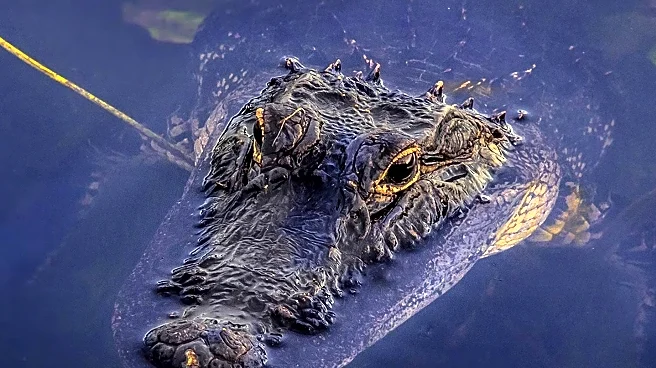What's Happening?
Bob Irwin, father of the late 'Crocodile Hunter' Steve Irwin, has publicly criticized American influencer Mike Holston for his viral videos capturing crocodiles in Far North Queensland, Australia. Holston, known as 'The Real Tarzan' on social media, posted videos of himself chasing and catching crocodiles, which sparked backlash from conservationists. Bob Irwin condemned Holston's actions, calling them disrespectful to wildlife and advocating for stricter nature laws on social media. He emphasized that Holston's behavior should not be compared to his son's conservation efforts, which focused on respecting and educating about wildlife. The Queensland Environment Department is investigating the incidents, considering fines and compliance actions against Holston.
Why It's Important?
The incident highlights the growing concern over social media's role in promoting harmful wildlife interactions. Bob Irwin's criticism underscores the potential negative impact of such content, which can lead to dangerous precedents and encourage reckless behavior. The situation raises questions about the responsibility of influencers and the need for regulatory measures to protect wildlife. The broader implications include the risk of normalizing harmful practices and the potential for increased wildlife management issues. Conservationists argue that such actions can have disastrous consequences for both animals and humans, emphasizing the need for public awareness and stricter enforcement of wildlife protection laws.
What's Next?
The Queensland Environment Department is actively investigating the videos and considering strong compliance actions, including fines, to deter similar behavior. The maximum penalty for interfering with a saltwater crocodile is $37,500, with an on-the-spot fine of $8,345. Authorities are expected to take decisive action to hold influencers accountable and reinforce the importance of respecting wildlife laws. The incident may prompt discussions on implementing stricter regulations for social media content involving wildlife interactions. Conservationists and policymakers might push for educational campaigns to raise awareness about the ethical treatment of animals and the consequences of irresponsible behavior.
Beyond the Headlines
The controversy sheds light on the ethical dimensions of wildlife interactions in the age of social media. It raises questions about the portrayal of animals as props for entertainment and the potential desensitization of viewers to the plight of endangered species. The incident also highlights the cultural significance of wildlife in Australia and the public's protective stance towards native animals. The broader conversation may lead to a reevaluation of how wildlife is represented in digital media and the responsibilities of content creators in promoting conservation values.









